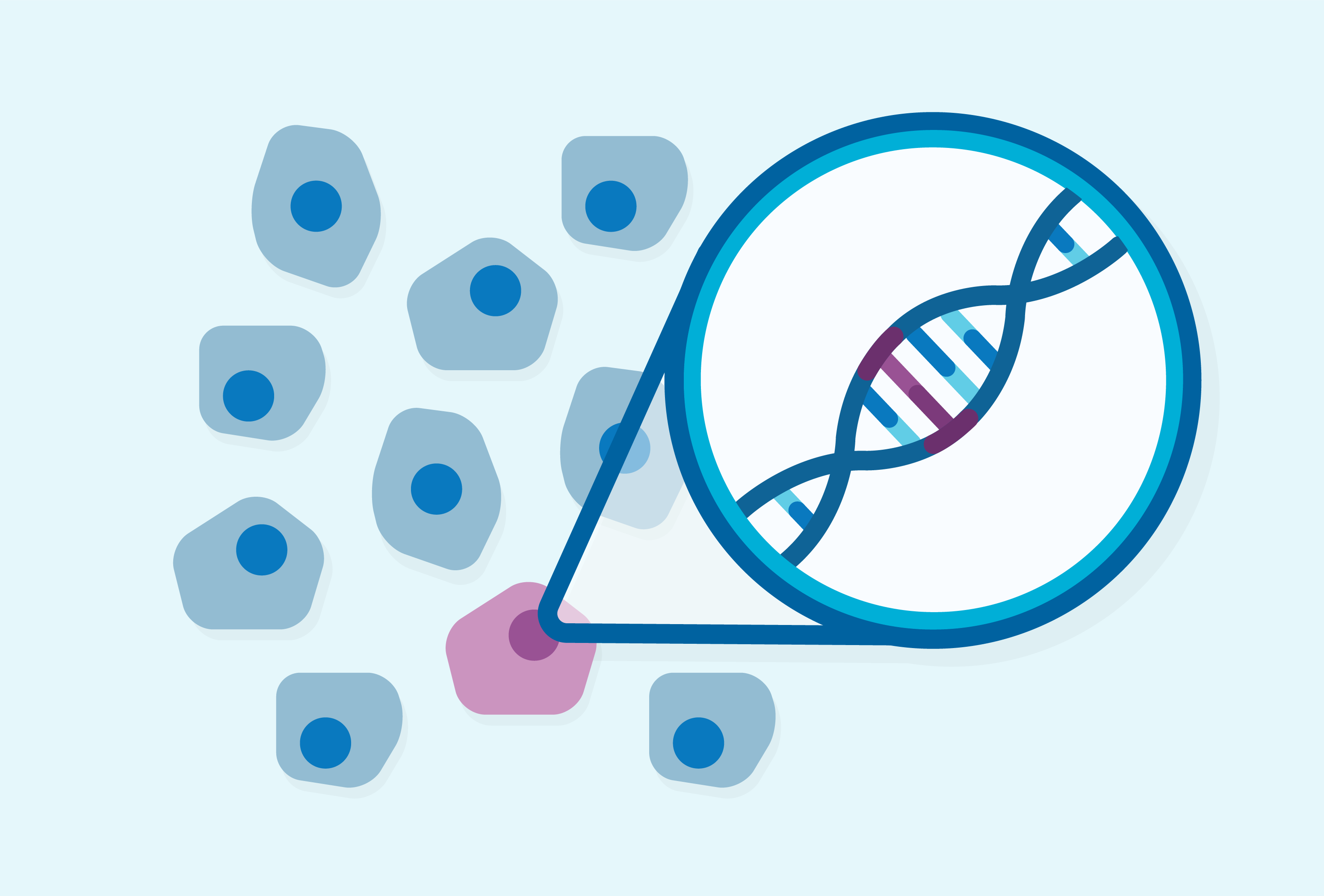Biotechnology is a field of technology that implements biomolecular and cellular processes in the creation of specific purposes, such as food, fuel products, and healthcare. Modern biotechnology is categorized into five distinct branches, which include human, environmental, industrial, animal, and plant biotechnology. These branches have proven to be effective in addressing various global challenges such as hunger and disease. Additionally, they have enabled us to produce goods and services in a safer, cleaner, and more efficient manner. Furthermore, biotechnology has helped us reduce our ecological footprint and conserve energy.
❖ Some milestones in the growth and advancement of biotechnology over the last hundred years include:
- In 1919, the biotechnology term was coined by Hungarian agronomist Karl Ereky.
- In 1928, Scottish bacteriologist Alexander Fleming made a discovery of the antibiotic penicillin.
- In 1943, Oswald Theodore Avery, a Canadian scientist, made a discovery that DNA is the carrier of genes.
- In 1953, Biologists James Watson and Francis Crick elucidated the DNA as a double helix.
- In 1969, an enzyme was artificially synthesized in a laboratory first time in history.
- In 1983, the introduction of the first genetically modified (transgenic) plant marked a significant milestone in the field of genetic engineering.
- In 1997, the first cloned mammal, Dolly the sheep, was discovered by the world.
- In the year 1998, a comprehensive draft of the human genome map was developed, successfully identifying over 30,000 genes.
- In 2010, the first synthetic cell was created by A group of researchers from the Craig Ventere Institute
- In 2013, the first bionic eye was produced in the US, giving hope to blind people worldwide.
- In the year 2020.Biotechnology advancements played a pivotal role in combating the SARS-CoV-2 pandemic.
Over the past decade, there has been consistent growth in biotechnological advancements, encompassing not just the field of medicine but also agriculture, the environment, and the energy sectors. The majority of these innovations revolve around genetic engineering, diagnostics, and assays, highlighting the significant role of synthetic biology in shaping the current landscape of biotechnology. Let’s explore a few of these transformative biotech innovations that are revolutionizing the industry.
❖ Single Cell Technologies

Single cell technologies play a crucial role in drug discovery and clinical research by offering comprehensive insights into cellular environments. When combined with next-generation sequencing, these technologies provide a more accurate representation of cell populations, which is particularly valuable in comprehending the diverse nature of tumor environments. Since these technologies are primarily utilized in research settings, numerous contract research companies provide specialized DNA panels for single-cell sequencing and analysis platforms.
Disease-specific characterization can be accomplished through the utilization of targeted DNA panels, such as the acute lymphoblastic leukemia panel. Typically, single-cell analyses necessitate the use of multiple machines with distinct protocols. However, Berkeley Lights has made significant progress by creating a singular machine capable of individually processing and analyzing cells simultaneously.
❖ Stem Cell Applications

Scientists have been researching the conditions for and controlling the differentiation of stem cells since the early 1980s. The ability to manipulate the development of specific cell types has proven to be of great importance in various industries, including drug development, regenerative medicine, and the production of valuable biomaterials. Novo Heart, a Canadian company, stands out as an exemplary case. They have successfully created a remedy for scientists engaged in drug testing for heart-related ailments. The MyHeart platform they have devised employs iPSCs to produce models of human cardiac tissue or organs, including the remarkable human ventricular cardiac organoid chamber, commonly referred to as the “human heart-in-a-jar.”
These models closely resemble the actual human heart environment, providing a more accurate representation compared to animal models commonly used in preclinical development. The purpose of MyHeart is to enhance the prediction of the effects of new drugs before they enter clinical trials.
❖ Aptamer biosensors

Since the 1960s, including biosensor-based detectors such as glucose monitors, pregnancy tests, and heavy-metal sensors have been developed and utilized. However, newer sensor technologies have shifted towards nucleic acid aptamer-based methods due to their potential for increased sensitivity, stability, and cost-effectiveness. Aptamer biosensors are typically created through SELEX, or systematic evolution of ligands using exponential enrichment. Aptamer Sciences, a South Korea-based company, has developed the AptoDetect-Lung, an in vitro diagnostic test that detects seven lung cancer biomarkers to assess a patient’s risk of developing lung cancer. This examination has demonstrated enhanced diagnostic precision compared to CT scan testing and has recently obtained diagnostic authorization from the Korean Ministry of Food and Drug Safety.
❖ Bioplastics
The attention towards environmental and ecological issues is growing at a rapid pace. Individuals are becoming more conscious about the substances they incorporate into their daily routines. Plastic, in particular, has witnessed a remarkable shift in public awareness. Shockingly, approximately 12.7 million tons of plastic end up in the ocean annually. This substance takes hundreds of years to break down and poses a substantial danger to marine organisms. Thankfully, innovative approaches are emerging to decrease our reliance on plastic. The biotech industry has developed a method known as bioplastics, which offers a promising solution. We are witnessing a growing trend towards the use of organic materials that naturally break down over time or can even be safely consumed as alternatives to plastic. It is projected that the use of bioplastics will increase by 20% annually until 2021. These materials are far less harmful to the environment while still offering many of the advantages of conventional plastics.
❖ 3-D Bioprinting

The biotech innovation sector has seen another exciting development with the emergence of 3-D bioprinting. In the 2010s, 3-D printing was a significant breakthrough, but the next phase is equally groundbreaking. This innovative technology utilizes living cells to fabricate diverse human body components, such as heart valves, skin, and cartilage, for medical purposes. Bioprinting holds immense potential in producing medications, pills, and even complete organs like hearts or livers using a patient’s own cells. The capability to print human organs will also find valuable applications in medical research and training, providing accurate samples for study and analysis.
❖ Biotech in Industry
Biotechnology is widely applied in various industries, with biofuels, paper, and chemicals being prime examples. By harnessing the power of biological processes, the energy and manufacturing sectors can effectively utilize biocatalysts such as yeast, enzymes, and microbes to produce microscopic solutions. Biotechnology plays a crucial role in enhancing chemical manufacturing efficiency, reducing the cost of laundry through temperature reductions, optimizing manufacturing operation expenses, decreasing reliance on petrochemicals, mitigating greenhouse gas emissions through biofuel adoption, and minimizing water waste usage.
❖ Biotech in Agriculture
Sustainable agriculture, and the development of crop insect-resistance exemplify the utilization of biotechnology in the field. These innovative practices harness the power of microorganisms to enhance and modify agricultural products, resulting in safer and more efficient production methods. It is projected that the global agricultural biotechnology market will experience a substantial growth of $25.3 billion from 2021 to 2025. The implementation of biotechnology in agriculture holds immense potential to address various challenges and contribute to the advancement of the industry.
New biotechnological advancements emerge on a daily basis, and the sector will persistently expand as individuals strive to overcome biological obstacles through targeted research-driven remedies. Enhancing agricultural productivity while conserving resources, contributing to environmental preservation by minimizing chemical usage and crop runoff, developing hardier crops without relying on pesticides, addressing vitamin and nutritional deficiencies to enhance crop quality, modifying oil content in food to mitigate heart health risks, and producing allergen-free and mycotoxin-free food.
❖ Challenges in Biotech
The potential of biotech advancements to revolutionize health, energy, and agriculture is undeniable, but the road to innovation is fraught with challenges. One major obstacle is the hyper-focus of bio-health companies on research and development (R&D) in the medical sector, which involves significant risks in the design of new drugs. Biotech’s primary focus is on non-food uses of crops and other products, with the bio-industrial market transforming unappetizing raw materials into edible food. Furthermore, innovative packaging and product storage have extended the shelf-life of many foods thanks to the biotech industry’s advances.
❖ Conclusion:
In current scenario, there is an essential requirement of innovative technology and their application based discoveries. Biotechnology plays a vital role and acts as a boon for social well-being and the environment. The in-depth knowledge in this field has become fascinating for many. IIMTU known as the best private university in U.P., fosters innovative learning in biotechnology through cutting-edge programs, state-of-the-art laboratories, and a dynamic curriculum. It provides students with access to modern research facilities, encouraging hands-on experience in genetic engineering, molecular biology, and bioprocess technology. Collaborations with industry leaders and research institutions enable exposure to real-world challenges, promoting practical skill development. The faculty, comprising experienced professionals and researchers, guide students in exploring the latest advancements in biotechnology. IIMT University emphasizes interdisciplinary approaches, ensuring a holistic understanding of the field. Through conferences, workshops, and industry interactions, IIMT University actively promotes an environment conducive to continuous learning and innovation in biotechnology.
Author: Dr. Sarita,
Assistant Professor, SoLST.
To learn about biotechnology innovation, click here:













